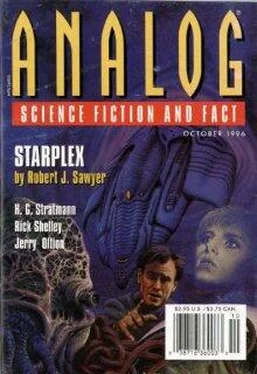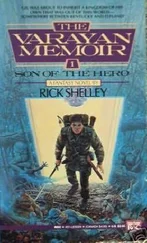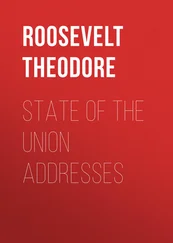Rick Shelley - State of the Union
Здесь есть возможность читать онлайн «Rick Shelley - State of the Union» весь текст электронной книги совершенно бесплатно (целиком полную версию без сокращений). В некоторых случаях можно слушать аудио, скачать через торрент в формате fb2 и присутствует краткое содержание. Год выпуска: 1996, Издательство: Dell Magazines, Жанр: Фантастика и фэнтези, на английском языке. Описание произведения, (предисловие) а так же отзывы посетителей доступны на портале библиотеки ЛибКат.
- Название:State of the Union
- Автор:
- Издательство:Dell Magazines
- Жанр:
- Год:1996
- ISBN:нет данных
- Рейтинг книги:5 / 5. Голосов: 1
-
Избранное:Добавить в избранное
- Отзывы:
-
Ваша оценка:
- 100
- 1
- 2
- 3
- 4
- 5
State of the Union: краткое содержание, описание и аннотация
Предлагаем к чтению аннотацию, описание, краткое содержание или предисловие (зависит от того, что написал сам автор книги «State of the Union»). Если вы не нашли необходимую информацию о книге — напишите в комментариях, мы постараемся отыскать её.
State of the Union — читать онлайн бесплатно полную книгу (весь текст) целиком
Ниже представлен текст книги, разбитый по страницам. Система сохранения места последней прочитанной страницы, позволяет с удобством читать онлайн бесплатно книгу «State of the Union», без необходимости каждый раз заново искать на чём Вы остановились. Поставьте закладку, и сможете в любой момент перейти на страницу, на которой закончили чтение.
Интервал:
Закладка:
Wilson looked up. Senator Hitch appeared to be choking to death. Wilson wondered if Hitch had swallowed his cigar. The senator’s face was red; he was leaning forward, coughing and gagging. Senator Tavish looked at his colleague with concern. An aide leaned over Hitch, and moved a glass of water closer. After a moment of extreme difficulty, Hitch took a sip. It seemed to help, but his face remained a bright red after he stopped coughing. It was several minutes before he was able to speak, after waving off a suggestion that paramedics be summoned.
“You brought Al Capone to the present?” Hitch demanded, disbelief or shock doing strange thinks to his normally well‑tempered speaking voice.
“Scar and all,” Wilson admitted cheerfully.
“We don’t have enough hoodlums of our own? You have to import the most notorious of them all?”
“It could have been worse,” Wilson said. “Besides, I figured that Capone would be an amateur compared to some of the talent around today—or at least around at the time I brought Capone forward. If we were really talking about today, it would be different, but if I hadn’t made the time machine and brought Capone forward, we would still be up to our ears in organized crime, and all that that entails.”
“Are you trying to tell us that A1 Capone got rid of all of our mobsters?”
“More or less, Senator. He did a good job of eliminating competition in his own time, if you think about it. That’s what St. Valentine’s Day, 1929, was all about.” Wilson waited for a moment to see if Hitch had anything else to say, or if any of the other committee members wanted a turn. When no one spoke, he went back to his prepared statement.
To my surprise, I was invited to sit in on the discussions that my patrons had with Capone, once they had convinced him that he had indeed been pulled decades into his future. I guess that they figured I had taken enough money from them that I was too far in to get out. Maybe they were right.
Capone did not take nearly as much convincing as I might have expected. A calendar, two minutes of watching a television while one of Zarelli’s clients used the remote to surf the cable, a look at the front page of that day’s Tribune, and a glance out the window at the automobiles going by seemed to do the job.
My patrons asked Capone to undertake an important mission for them. They wanted him to eliminate all of the “other” gangs, the Colombian, Asian, African‑American, and so forth. The idea was for Capone to collect gunmen from his own time. They would be moved from spot to spot, with people who knew the targets. The gunners would be returned to their own time when the job was done, away from any possible prosecution. When the operation was over, Capone would be paid a sum even more outrageous than what my patrons had offered me—in gold bullion.
It was at that point that 1 offered a suggestion of my own. “I think I can make this all a lot safer and simpler.” Most of the people looked at me as if they had forgotten that I was there. The stares were enough to start the flesh crawling up and down my spine.
“How?” Zarelli asked after one of the principals gave him a look.
“The machine,” I said. Maybe I was on the hook too much to get out, but I had no liking for the bloodbath they had in mind. “Pinpoint the targets the way you did Mr. Capone’s location. We move them somewhere—some‑ when —where they can no longer give you any problems. They simply disappear, more completely than if they went swimming with concrete boots. No trouble with the law. No bodies to dispose of. No chance of losing any of your own people in the process. Nice and tidy.”
Almost as soon as the words were out of my mouth I regretted mentioning concrete boots. Those men were not the type to take levity well. There was a period of silence. Capone and my patrons looked around at each other. There were shrugs, facial gestures, cocked heads. They did more business with body language than some groups of people can do with millions of words.
“You’ve got a smart boy there,” Capone said after a minute or two. He looked at me. “Do it neat.”
Another thought came to me. If my patrons did it my way, Capone might be out ten million dollars. Once he realized that, he might be less kindly disposed to me. “Of course, things can go wrong,” I said. “It would be best to have an expert on hand with the people to take care of anything like that.”
Capone grinned, then laughed out loud. “I like this kid,” he said. He walked over to me and pinched my cheek. “I like you. What’s your name?” I told him.
“Well, Bill Wilson, you got a good head on your shoulders. You use it to think. I could use someone like you.”
“Thank you, Mr. Capone, but I’m booked up solid with these gentlemen.”
The principals agreed to act on my suggestion, with Capone handling security. We moved to a restaurant for a banquet. The rest of my sponsors showed up for that. Everyone wanted to meet Capone, talk with him, have their pictures taken with him. The party went on into the wee hours of the morning.
The next day the real work began. During the first couple of months it went slowly, as the targets were tracked and we worked out the necessary routines. Then, just after the elections last November, the operation went into high gear. By Christmas it was over. And now, here I am.
Wilson assembled the pages of his statement, tapping the sheaf on the table in front of him several times. He looked up at the senators. At some point, Senator Hitch had left. The gap at the bench was as obvious as a missing tooth in a wide grin.
“I will be delighted to answer any questions,” Wilson said.
Senator Tavish looked around, as if he wanted to be absolutely certain that Hitch was gone, then cleared his throat. “It’s almost time for us to recess for lunch, Dr. Wilson, but I would like to ask a couple of questions before we do.”
Wilson nodded his acceptance.
“Assuming that it was the Mafia who financed your machine, and that you got rid of all of their competition from other ethnic and national groups, what happened to them? The reports this committee have received also indicate that no known Mafia members have been seen since Christmas either. I doubt very much that they hired you to get rid of all of the competition and then retired en masse themselves.”
“No, Senator, they certainly did not. But you have to understand, sir, that this was a massive operation. I was working eighteen hours a day, seven days a week. We had to find and transport literally tens of thousands of individuals, and we had to work quickly, before significant numbers of them could ‘take a powder,’ once they realized that something serious was up. That meant that my patrons had to put virtually every man and woman on their payroll into the operation, spotting, and being ready to respond to any emergencies—their SWAT teams, you might say. The last two days....” Wilson stopped and shook his head slowly.
“I finished the operation in one thirty‑six‑hour stretch, non‑stop. When I got to that point, I had to work fast, before one of my sponsors realized what I was up to and decided that I should be eliminated. Up until the point that I started operating against my employers, I felt safe. The machine needed attention often enough that only I could provide. They had to have me to use the apparatus. And the time I had spent working on getting rid of their competitors had given me plenty of opportunities to study my patrons and their, ah, traditional employees. I had to get the right people first, scramble their command and control structure, to use the military idiom. My employers were very paranoid about security matters, and that worked against them. I got rid of them all, every last one of them, including Zarelli and Pastor. I shipped them all out, right down to the people who were there to keep watch over me.”
Читать дальшеИнтервал:
Закладка:
Похожие книги на «State of the Union»
Представляем Вашему вниманию похожие книги на «State of the Union» списком для выбора. Мы отобрали схожую по названию и смыслу литературу в надежде предоставить читателям больше вариантов отыскать новые, интересные, ещё непрочитанные произведения.
Обсуждение, отзывы о книге «State of the Union» и просто собственные мнения читателей. Оставьте ваши комментарии, напишите, что Вы думаете о произведении, его смысле или главных героях. Укажите что конкретно понравилось, а что нет, и почему Вы так считаете.












